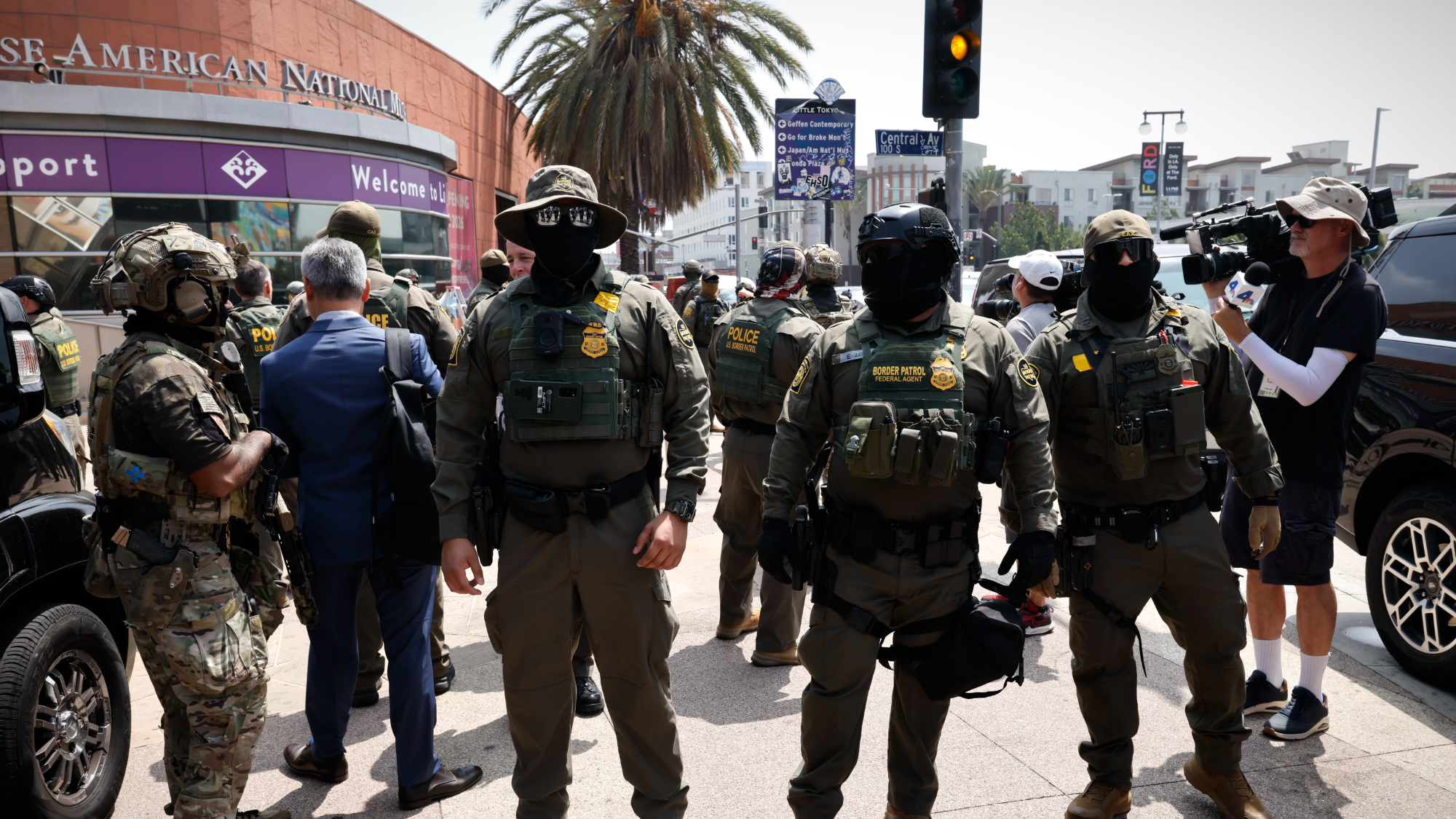Just how much are 2020 U.S. election conspiracies affecting Germany's own vote?


A free daily email with the biggest news stories of the day – and the best features from TheWeek.com
You are now subscribed
Your newsletter sign-up was successful
Germany's far-right movement isn't expected to make significant noise in the country's elections on Sunday — in fact, the Alternative for Deutschland Party is polling slightly below its 2017 numbers — but the influence of extremist groups is "stronger than polls tellus us," Boris Pistorius, the Social-Democratic minister of Lower Saxony, told The Washington Post.
Some people think that's a result of conspiracy theories, including QAnon, that have sprouted up in the United States in recent years, gaining traction during former President Donald Trump's time in office and, especially, after he was defeated by President Biden in the 2020 election. For instance, the Post reviewed now-deleted messages in a far-right group's chatroom on the Telegram app, some of which advocated for "occupying election offices."
There's not a consensus on how widespread or meaningful the seemingly U.S.-inspired rhetoric is in the German context, however. Miro Dittrich, a researcher for the Berlin-based Center for Monitoring, Analysis, and Strategy, told the Post that far-right claims of election fraud have been in play for a few years now in Germany, but they gained prominence after Trump "starting telling the 'big lie'" last year. "Far right groups and the AfD are carefully monitoring the success Trump is having with this narrative," Dittirch said.
The Week
Escape your echo chamber. Get the facts behind the news, plus analysis from multiple perspectives.

Sign up for The Week's Free Newsletters
From our morning news briefing to a weekly Good News Newsletter, get the best of The Week delivered directly to your inbox.
From our morning news briefing to a weekly Good News Newsletter, get the best of The Week delivered directly to your inbox.
On the other hand, Detlef Junker, a historian focusing on the U.S. at the University of Heidelberg, said it's only a "lunatic fringe" that has been taken in by the conspiracies. Peter Wittig, who served as the German ambassador to Washington, from 2014 to 2018, agreed with both to an extent, telling the Post that Trump's rhetoric has indeed had some influence on Germany's far-right, but the actual political results are milder because Germany's multiparty parliamentary system has been able to prevent a mass movement. Read more at The Washington Post.
A free daily email with the biggest news stories of the day – and the best features from TheWeek.com
Tim is a staff writer at The Week and has contributed to Bedford and Bowery and The New York Transatlantic. He is a graduate of Occidental College and NYU's journalism school. Tim enjoys writing about baseball, Europe, and extinct megafauna. He lives in New York City.
-
 The environmental cost of GLP-1s
The environmental cost of GLP-1sThe explainer Producing the drugs is a dirty process
-
 Greenland’s capital becomes ground zero for the country’s diplomatic straits
Greenland’s capital becomes ground zero for the country’s diplomatic straitsIN THE SPOTLIGHT A flurry of new consular activity in Nuuk shows how important Greenland has become to Europeans’ anxiety about American imperialism
-
 ‘This is something that happens all too often’
‘This is something that happens all too often’Instant Opinion Opinion, comment and editorials of the day
-
 House votes to end Trump’s Canada tariffs
House votes to end Trump’s Canada tariffsSpeed Read Six Republicans joined with Democrats to repeal the president’s tariffs
-
 Bondi, Democrats clash over Epstein in hearing
Bondi, Democrats clash over Epstein in hearingSpeed Read Attorney General Pam Bondi ignored survivors of convicted sex offender Jeffrey Epstein and demanded that Democrats apologize to Trump
-
 El Paso airspace closure tied to FAA-Pentagon standoff
El Paso airspace closure tied to FAA-Pentagon standoffSpeed Read The closure in the Texas border city stemmed from disagreements between the Federal Aviation Administration and Pentagon officials over drone-related tests
-
 Judge blocks Trump suit for Michigan voter rolls
Judge blocks Trump suit for Michigan voter rollsSpeed Read A Trump-appointed federal judge rejected the administration’s demand for voters’ personal data
-
 US to send 200 troops to Nigeria to train army
US to send 200 troops to Nigeria to train armySpeed Read Trump has accused the West African government of failing to protect Christians from terrorist attacks
-
 Grand jury rejects charging 6 Democrats for ‘orders’ video
Grand jury rejects charging 6 Democrats for ‘orders’ videoSpeed Read The jury refused to indict Democratic lawmakers for a video in which they urged military members to resist illegal orders
-
 Judge rejects California’s ICE mask ban, OKs ID law
Judge rejects California’s ICE mask ban, OKs ID lawSpeed Read Federal law enforcement agents can wear masks but must display clear identification
-
 Lawmakers say Epstein files implicate 6 more men
Lawmakers say Epstein files implicate 6 more menSpeed Read The Trump department apparently blacked out the names of several people who should have been identified
